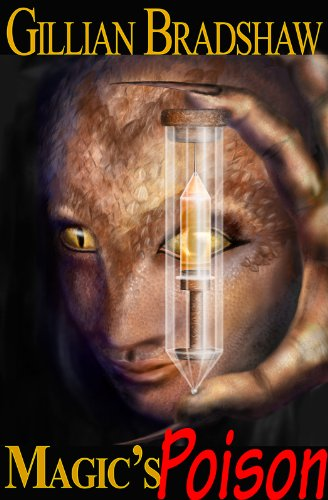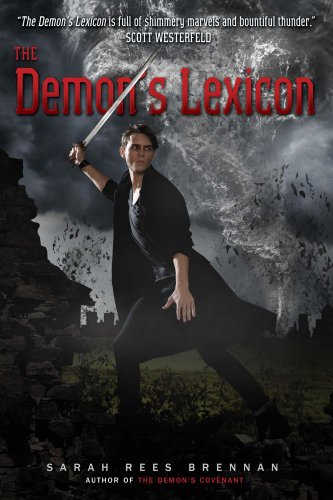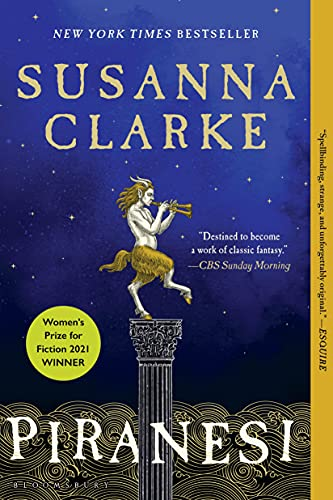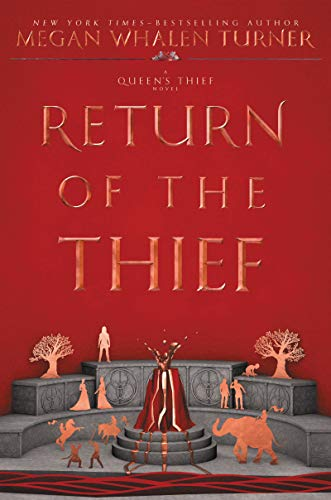the Worst Plot Element
So, a trope or plot element that I truly detest is betrayal. I just loathe treachery, and the more important betrayal is to the story, the more I hate it.
I didn’t realize that until pretty recently. That is, I don’t think I’ve pulled out “treachery” as a trope I especially hate before. That seems strange to me now, because it’s such a total turnoff most of the time. I don’t like it if a trusted friend or, for example, a sibling, is betraying the protagonist. I don’t like it if it’s a romantic partner. I hate it if it’s a bodyguard. I’m not even keen on this plot element if it’s a chance-met acquaintance! I just do not like betrayal as a plot element at all, period. It’s worst of all if the protagonist goes on and on and on without realizing that she is being betrayed. It takes a remarkable writer to pull that off, and even then it’ll put my teeth on edge.
However, there are in fact three ways to make this plot element work for me. Just three, I think, and all three can fail if the author is the least bit clumsy in handling the element of treachery.
It’s not really betrayal, or The betrayer follows a redemption arc, orThe treacherous friend/sibling/whoever gets what’s coming to them.Let’s take a handful of examples. And, let me just say, this is the very first post where I have taken a stab at adding affiliate links, and thank you to those of you who suggested this recently. It would be nice to know if I’m doing it right, so if you have an inclination to click on a link and buy one of these books, this would be a good time to do that.
Now:
Here’s the description for Gillian Bradshaw’s The Sand Reckoner:

The young scholar Archimedes has just had the best three years of his life at Ptolemy’s Museum at Alexandria. To be able to talk and think all day, every day, sharing ideas and information with the world’s greatest minds, is heaven to Archimedes. But heaven must be forsaken when he learns that his father is ailing, and his home city of Syracuse is at war with the Romans.
Reluctant but resigned, Archimedes takes himself home to find a job building catapults as a royal engineer. Though Syracuse is no Alexandria, Archimedes also finds that life at home isn’t as boring or confining as he originally thought. He finds fame and loss, love and war, wealth and betrayal — none of which affects him nearly as much as the divine beauty of mathematics.
I love Gillian Bradshaw, so I picked this up without much hesitation. But I sure wasn’t thrilled at the mention of betrayal.
It turned out that this wasn’t actually betrayal in any way that mattered, so I was happy. This plot element is SO minor and SO not actually betrayal that the word really ought not have been used in the description. This is actually one of my favorites of Bradshaw’s books, although that’s a high bar and I’m not sure it’s actually in the top three. Regardless, it’s a fantastic example of an author writing a protagonist who is an actual genius. Needless to say, that’s not easy. With Archimedes, it’s probably not as difficult as it might be for certain other genius characters, because math-and-physics genius is easier to write (in some ways) than political or tactical genius.
But my point is, if it hadn’t been Bradshaw, I would never have known I loved the book, because I’m quite unlikely to pick up a book if the word “betrayal” is anywhere in the description. I doubt it’s possible to sort out which specific words turn off ten times more readers than they attract, but it’s hard to believe that “betrayal” isn’t among those words.
Bradshaw also wrote another book that featured both (a) a genius protagonist, and (b) betrayal, but not really: Magic’s Poison.

Forget the not-great cover and read the book. Here are my comments about this fantasy series. But the key point here is that this story features a very dramatic betrayal, only the astute reader will be highly suspicious that it’s not really a betrayal. Sure enough, it isn’t. Anything but. What we have here is a story where a tactical genius sets up a situation that looks like a betrayal in order to fulfil his own goals while also protecting the person he seems to have betrayed. This whole thing must have been tricky to pull off, needless to say. I mean, tricky for the author. This is the kind of plot twist I love. It’s a quite remarkable series, with the books getting better as you go along. These aren’t linked in a series page, so: Book 2 is The Enchanted Archive, Book 3 is The Duke’s Murder, and Book 4 is The Iron Cage. Book 4 is the best imo, but they ought to be read in order even though the first two books are perhaps a bit flawed.
Here’s another example, and in this one, the tension goes sky-high because it’s impossible to believe that the characters could possibly be betraying each other as they seem to be, but at the same time, it’s quite difficult to tell whether they’re actually putting on a show: The Demon’s Lexicon series by Sarah Rees Brennan.

This is the kind of series where the pov changes from one book to the next, but there’s one overall plot arc. You don’t see that very often, and Brennan pulls it off very nicely. The second book is The Demon’s Covenant and the third is The Demon’s Surrender.
These are very intense novels. The situations get grim. If you’re thinking, hmm, maybe not this year, I don’t blame you. If you read this series, more than once you are likely to find yourself thinking, Can he REALLY be doing what he seems to be doing? Is it POSSIBLE that she could be doing what it looks like she’s doing? Good Lord, PLEASE tell me this is part of a clever plan!
And, of course, since I’m mentioning these books in this post, you will now know that no, he isn’t, and no, she isn’t, and yes, it is. But it’s still going to be intense, believe me.
The above titles all feature betrayals that aren’t really betrayals. That isn’t actually what led me to write a post about this topic. This is:

And that is why I said in a recent post, that for a bit there I couldn’t believe some of you had recommended Quest for a Maid. Because seriously, treachery is just not at all what I was looking for. I thought about it, and eventually decided that what with one foreshadowing element and another, this isn’t too much of a spoiler. I hope it’s not, anyway.
This isn’t a story where the betrayal is faked or otherwise not really a betrayal; it’s one with a redemption arc. The redemption part was rather slow to appear, but it was solid in the end, which made all the difference in the world. Well, that and another little detail. That would be a spoiler, but it did make the ending much happier overall.
This doesn’t mean that this kind of treachery suddenly turns into my favorite plot element, by the way. It’s just that a redemption arc that makes treachery acceptable to me, rather than making me recoil and swear off other novels by the author. I am having a certain amount of trouble thinking of other novels with this kind of betrayal-redemption plot arc. I’m sure there are zillions. I feel like there are a clutter of examples on the tip of my tongue. If anybody can think of one, please drop it in the comments.
The third possibility, that it’s real treachery and not redeemed, is not my favorite thing even if the treacherous person gets what he deserves in the end. Again, that’s acceptable, but not a plot element I really enjoy. I can think of just a couple of novels that worked for me. One is Peranesi by Susannah Clarke.

Several elements contribute to the success of this novel despite the obvious, egregious selfishness, pettiness, and treachery of the secondary character:
–The writing and the setting are both just so beautiful.
–The reader is in absolutely no doubt about the treacherous nature of the secondary character, but somehow the innocence of the protagonist is not a problem. This is strange. I think it has to do with the remarkable nature of that innocence, so far beyond what we normally see in ordinary characters that it doesn’t cause the reader to roll their eyes and say How can he be so stupid? It’s not like that at all.
–And, finally, yes, the treacherous character gets what he deserves. The plot of the story is therefore just. That wouldn’t be enough on its own, but in combination with the other elements that contribute to this story, it is.
I wonder if any of you are thinking of the other one that came to mind for me with regard to this type of betrayal? It’s The Return of the Thief by MWT.

Here, the betrayal element did not bother me because I saw it coming, because I trusted Gen probably had a plan — I certainly did wonder about that partway through, I must say, because he did fool me when it came to the moment. And most of all because the aftermath of that whole scene was just so remarkable. That’s the moment where I thought that if I’d been the Mede general or lord or whoever was in charge, I would have said, Oh, huh, look at that, I kinda have the impression the gods are not on our side in this conflict, so you know what, time to go home.
I think this sort of plot element must work best for me if something about it is fairly far out of the ordinary. Although they’re so different, both Piranasi and The Return of the Thief do have that in common: whatever is going on that’s related to the betrayal is contained within a broader plot that is indeed astounding in some way.
So, basically, for me, although I generally can’t stand treachery and betrayal as plot elements, the exceptions are (best!) it’s not a real betrayal; redemption plot arcs, and justice-is-done endings. Nevertheless, for me, if the book description includes the word “betrayal” or “treachery,” that book is going to be a very hard sell. If the description also says “amazing plot twist,” that might do it by implying that one of those three elements might tilt the betrayal into some form that I either enjoy or at least appreciate. Or maybe not. Seriously, those are just not words that make me click through to download a sample.
How about you all, how do you feel about treachery as a plot element?
Please Feel Free to Share:






The post the Worst Plot Element appeared first on Rachel Neumeier.



